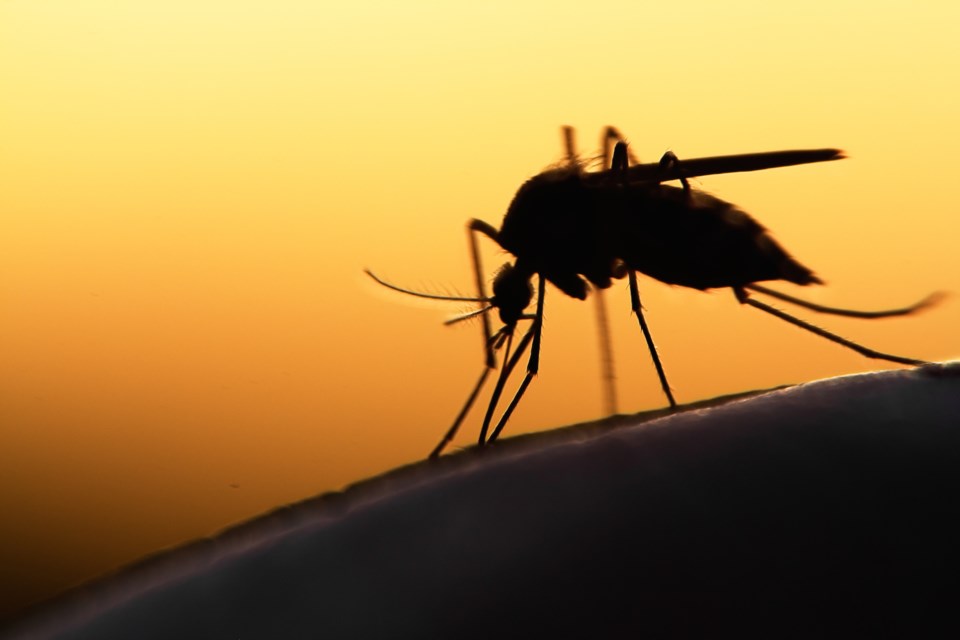Boulder County Public Health on Monday announced that mosquitoes in Superior, Louisville, and Longmont have tested positive for West Nile virus. The positive mosquito pools came from traps near Izaak Walton Park and St. Vrain Greenway in Longmont, Coal Creek Golf Course and Coal Creek Trail in Louisville, and Original Town in Superior, according to a news release.
West Nile virus is transmitted to humans from the bite of an infected mosquito. While most infections are mild, more serious infections can cause encephalitis (inflammation of the brain) and/or meningitis (inflammation of the brain's lining), loss of vision, paralysis, coma, tremors, convulsions, and death, according to the release. Symptoms of West Nile include fever, extreme fatigue, headache, body aches, and also can include skin rashes and swollen lymph nodes. Public Health advised anyone who experiences to consult their health care provider. Generally, symptoms appear three to 14 days after being bitten by an infected mosquito, according to the county.
There is no treatment, cure or human vaccination for the virus, but symptoms can be treated to help patients feel better and possibly recover more quickly, according to the release.
The vector index, which describes the relative risk of West Nile virus transmission, is 0.20 for Longmont and 0.21 for Superior and Louisville, according to Boulder County Public Health. The vector index is calculated based on the number of mosquitoes present in a trap area and the proportion of which are infected with West Nile. Emergency spraying may be recommended when the vector index reaches 0.75 or higher, according to the release.
In Longmont, spraying has already been occurring in predetermined “hotspot” zones. The spraying, which is conducted on Thursdays, is done by contractor Vector Disease Control International.
Spraying occurs when the number of mosquitos in area traps exceeds 150 and when West Nile virus has been detected in the Longmont area, according to the city. A map of predetermined spray areas can be viewed at LongmontColorado.gov/westnile.
Notice of spraying is posted Tuesdays at LongmontColorado.gov/westnile. Residents also can sign up to be alerted when spraying will take place by using the city’s eNotification subscription page.
Vector Disease Control International uses ultra-low volume fogging equipment and sprays after dusk when the majority of mosquito species are most active, according to the city. Use of the least-toxic products possible and calibrated application timing aim to minimize non-target impacts of spraying, according to the city.
Longmont residents can request notifications and shutoffs when spraying is planned near their properties by calling Vector Disease Control at 970-278-9977 or visiting vdci.net/colorado. Three options are available: To receive a call before spraying takes place; to have the spray machine shut off when it passes their property, or to receive notification and have the machine shut off as it passes.
“Even though it can be inconvenient, taking steps to protect ourselves and loved ones is the best thing we can all do to prevent becoming very ill,” Marshall Lipps, Boulder County Public Health environmental health specialist, stated in the release. “Our recent high temperatures and standing water have created the ideal environment for mosquitoes to breed.”
To further protect them from West Nile virus, Boulder County Public Health officials urge residents to observe the 4Ds:
-
Use DEET-enhanced insect repellent or alternatives, including Bite Blocker, Picaridin, Oil of Lemon Eucalyptus, or IR3535.
-
Dress in long sleeves and pants.
-
Avoid the outdoors from dusk until dawn.
-
Drain standing water outside of homes.
Mosquito season generally lasts from late April until mid-October and typically ends with the first freeze in the fall, according to the county. No Boulder County residents have tested positive for West Nile virus this season, but one human case has been reported in Colorado, according to state data, which is available here.
For more information about West Nile virus and mosquito activity in Boulder County, visit BoulderCountyMosquito.net.


